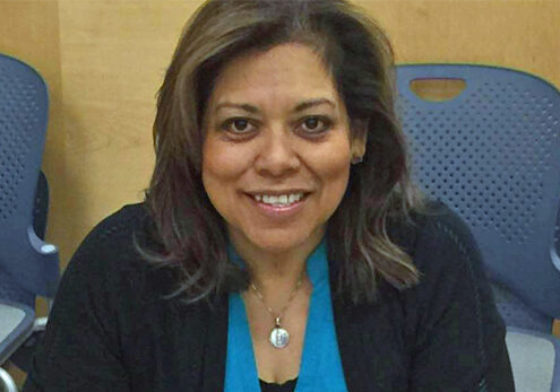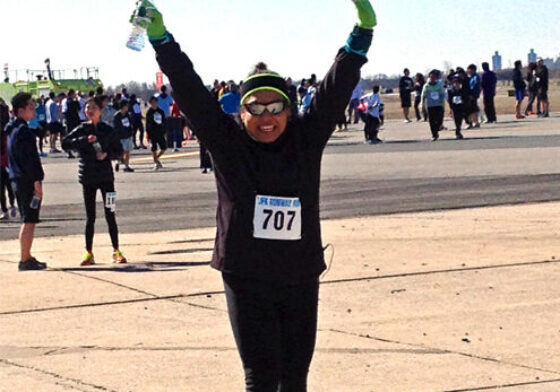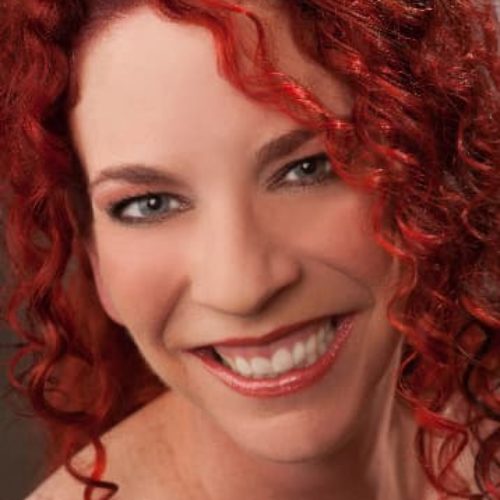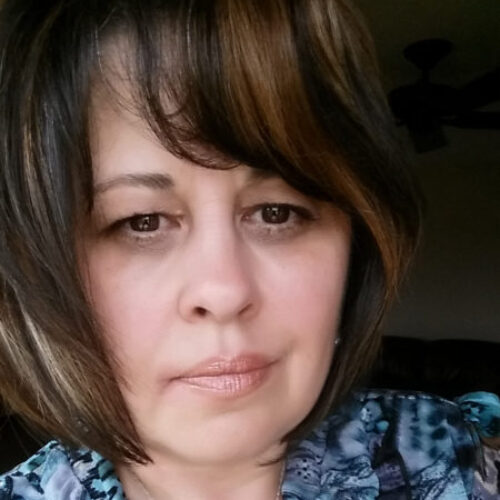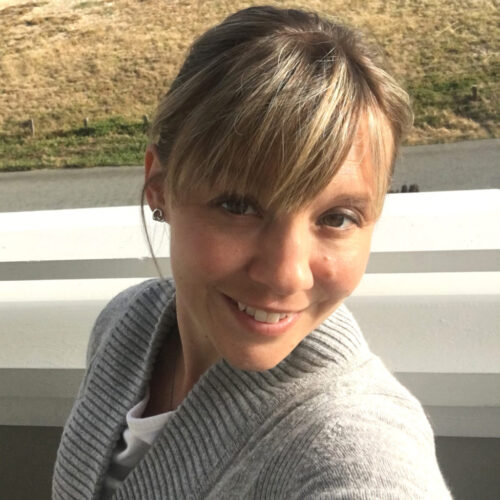I was ready to retire and preparing to have a great life after working for 20 years as a New York City police officer. I was in good health – or so I thought.
I started bleeding between menstrual cycles, and felt fatigued and bloated. I attributed these health changes to stress because I was getting ready to leave my job after 20 years, and that was a big change in my life. Never in a million years would I have thought it was cancer.
Three months went by and my bleeding had progressed to the point that I could not ignore it. I went to my OB-GYN whom I had not seen in three years because I did not think I needed to. Otherwise, I felt fine. I had a crazy busy schedule, and I was married for 10 years at the time.
Thinking that my doctor would tell me I had a fibroid or something similar, I was stunned when she told me that I needed to be referred to a gynecologic oncologist. My world as I knew it stopped.
“Women do not need to go through a journey like mine, and they do not need to become a statistic like me. Early detection and prevention save lives.”
After a few tests and a biopsy, I was officially diagnosed with stage 2B cervical cancer. My tumor was considered too big to be a candidate for a hysterectomy, so I had to go through seven treatments of chemotherapy, 35 treatments of external radiation and two treatments of internal radiation.
It was a very difficult journey to say the least and at times I wanted to give up. I was also ashamed to have a cancer that came from the human papilloma virus, which is a sexual transmitted infection. At the time, I did not know anything about HPV. My own husband educated himself on the disease and then educated me after. In May 2009, I heard the words that I longed to hear: I was cancer-free!
Today I am a cervical cancer survivor turned advocate, and I share my story in the hope to make a difference. Women do not need to go through a journey like mine, and they do not need to become a statistic like me. Early detection and prevention save lives.
My advice to others is to make time for yourself. You need to go to the doctor regardless of whether you are feeling fine. You need to have an annual well-woman exam. Getting your pelvic exams, and Pap and HPV tests is important – they can help you detect cancer early before you have major symptoms, or even avoid cancer altogether. Lastly, you can prevent cervical cancer by getting the HPV vaccine. Get vaccinated and vaccinate your children to prevent any of the six HPV-related cancers.
Symptoms
- bleeding between cycles
- fatigued
- bloating
